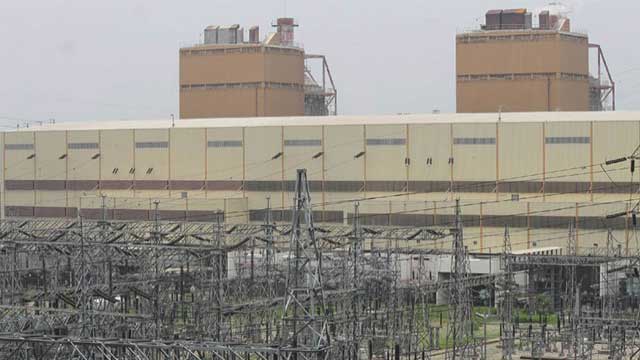Machine problems and inadequate transmission and distribution capacity interrupted electricity generation in a third of the power plants that generated electricity in the past financial year, according to a study.
In the financial year 2021–22, the number of active power plants ranged between 150 and 157, according to the study conducted by the Coastal Livelihood and Environmental Action Network using data provided by the Bangladesh Power Development Board.
The findings of the study were revealed on the second day of the three-day energy conference being held in Dhaka.
The 12 worst quality power plants, which stayed out of operation or encountered technical difficulties the most, took nearly Tk 2,336 crore in capacity charges in the past year, according to the study.
‘The findings explain why there is not enough power to use when there is about 58 per cent overcapacity,’ said Sarmin Akter Bristy, research officer, CLEAN.
Power plants with ultra-supercritical technology faced the highest problems with transmission and distribution—over 57 per cent of the operational time in the year.
No fossil fuel-based power plants, accounting for about 97 per cent of Bangladesh’s installed power generation capacity of 22,482 MW, could operate smoothly without encountering a problem or the other above 38 per cent plant factor.
The plant factor refers to the average power load of a power plant in relation to its capacity.
The study identified a list of 30 problems affecting power generation, dividing the problems into four major categories - faulty power plants, inadequate transmission and distribution capacity, stranded assets, and the fuel crisis.
Over 29 per cent of the power plants were classified as faulty, with engine and machinery problems affecting operation in 18.4 per cent of the power plants.
About 50 per cent of the state-owned power plants were classified as faulty, while the percentage was about 20 per cent in private and rental power plants.
Inadequate transmission and distribution capacity, resulting in problems such as line and transformer overloads, feeder problems, and frequency and voltage fluctuations, affected power generation at 4.7 per cent of the power plants available in the past financial year.
According to the study, 10 per cent of power plants are stranded, since they are mostly on reserve.
The study recommended decommissioning power plants that faced problems with engines or machinery for more than 40 per cent of the operation period in the past financial year.
The study also recommended stopping capacity payments to the power plants, which can’t confirm at 60 per cent plant factor smoothly.
The study also identified a list of seven power plants that produced almost zero electricity, while 10 other power plants operated at less than 10 per cent of their capacity.
The fuel crisis interrupted power production in 16.8 per cent of power plants.
Shakila Aziz, chairman of Solis Power and Energy, accused fossil fuel promoters in a parallel session of overestimating their plant factors, which are said to be 80 per cent for liquefied natural gas and 50 per cent for coal.
‘But LNG-run power plants can never achieve over 55 per cent plant factor, while plant factor at coal plants remains about 40 per cent,’ said Shakila.
‘Plant factor assumption of fossil fuel power plants was never correct,’ said Shakila.
Bangladesh’s current installed capacity is 23,332MW, with 49 per cent of the capacity based on natural gas, 33 per cent in furnace oil and diesel, and 11 per on coal.
Speakers at the seminar demanded the immediate lowering of all import tariffs on renewable energy accessories without delay and incentives to encourage people to invest in renewable energy.
‘Renewable accessories import tax should not be over one per cent,’ said Atiur Rahman, former governor of Bangladesh Bank.
Atiur said that there were many barriers to implementing renewable energy projects and asked for the creation of a renewable energy division.
The conference was also attended by lawmakers Shirin Akhter, Centre for Policy Dialogue research director Khondaker Golam Moazzem, and Bangladesh Environmental Lawyers Association chief executive Syeda Rizwana Hasan.
A group of 10 organisations, including the Bangladesh Working Group on External Debt, CPD, Action Aid, CLEAN, Climate Parliament Bangladesh, Waterkeepers Bangladesh, and Change Initiative, are organising the conference.





